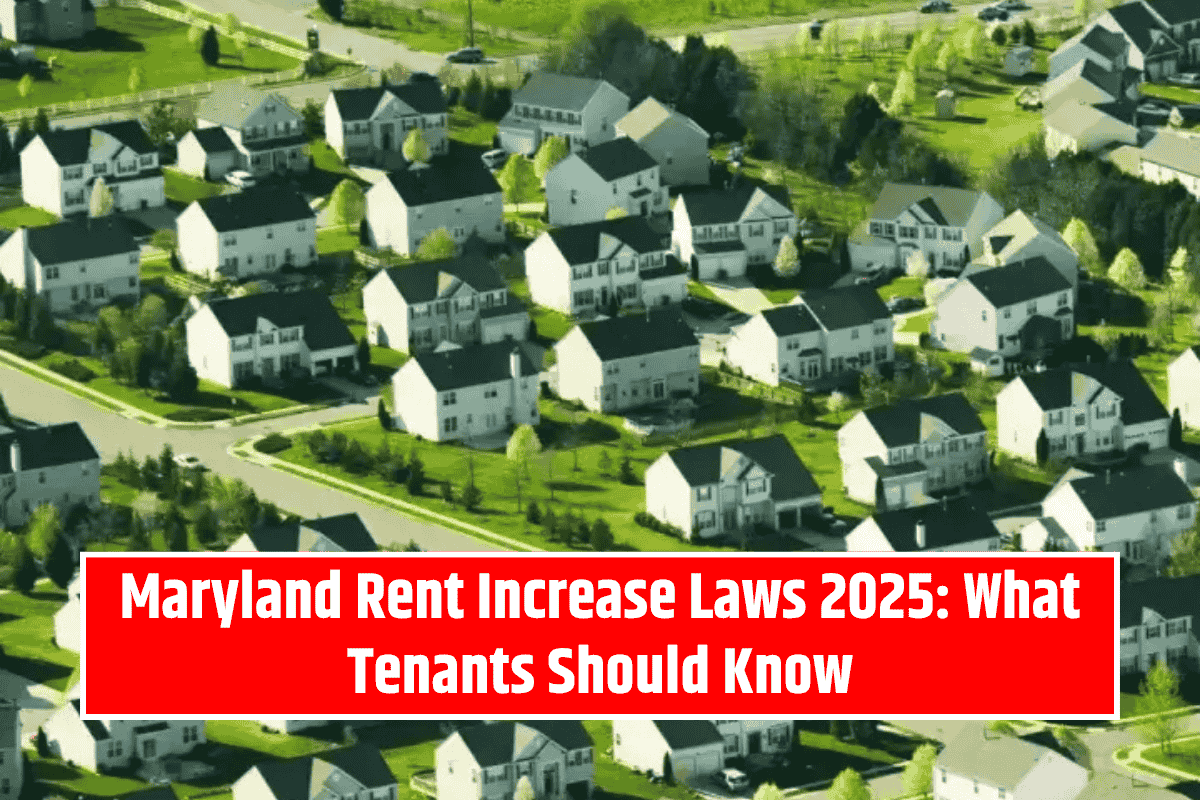Maryland has introduced a variety of statewide and local rules to manage rent increases, protect tenant rights, and ensure fair returns for landlords. With the recent passage of the Renters’ Rights and Stabilization Act of 2025, signed by Governor Wes Moore, several new measures have been put in place, particularly in areas like Montgomery County and Baltimore City, where rent affordability and stabilization are major concerns.
These new laws aim to strike a balance between protecting tenants and allowing landlords a fair return on their investment.
Understanding Rent Increase Notice Periods
Maryland law requires landlords to provide notice before increasing rent, and the notice period depends on the length and type of lease agreement:
- Leases longer than a month: 90-day notice
- Leases between a week and a month: 60-day notice
- Oral leases of a week or less: 21-day notice
- Written leases of a week or less: 7-day notice
These notice periods ensure that tenants have enough time to prepare for any changes in rent or negotiate adjustments. It’s essential for landlords to follow these rules to avoid facing legal issues.
Rent Caps and Stabilization Measures
While Maryland does not have a statewide rent cap, some counties have implemented local restrictions on rent increases. Two counties that are taking significant steps are Montgomery County and Baltimore City:
Montgomery County Rent Regulations
Montgomery County has taken the lead in rent stabilization. In 2025, Bill 15-23 was passed, which imposes a cap on rent increases. The new rule limits rent hikes to the lesser of 6% or the Consumer Price Index (CPI-U) + 3%.
This law, enforced by Executive Regulation 2-24, aims to prevent drastic rent increases while ensuring landlords can still earn a reasonable return on their property.
Baltimore City Oversight
Baltimore City does not have strict rent caps like Montgomery County but does monitor rent increases to ensure they stay in line with economic conditions. The city encourages landlords to maintain reasonable rent levels, particularly for vulnerable populations, though it doesn’t impose hard limits on rent increases.
Key Legal Provisions in the Renters’ Rights and Stabilization Act of 2025
The Renters’ Rights and Stabilization Act of 2025 introduces several new protections and responsibilities for both tenants and landlords. Some key provisions include:
- Higher filing fees for nonpayment complaints, aimed at discouraging evictions for minor issues.
- Protection against retaliation by landlords when tenants exercise their rights.
- Stricter requirements for landlords when justifying rent increases, ensuring transparency and fairness.
Capital Improvements and Justified Rent Hikes
Landlords are allowed to raise rent due to capital improvements, such as installing energy-efficient systems or making structural upgrades. However, such increases must:
- Follow local guidelines and be justified with proper documentation.
- Clearly inform tenants about the reason for the rent hike.
This ensures that tenants are not unfairly burdened by rent increases that are not related to necessary property improvements.
Tenant Rights and Legal Protections
Maryland tenants enjoy strong legal protections under state law. Some of the important protections include:
Security Deposits
Landlords may charge a security deposit of up to two months’ rent, which must be returned within 45 days of lease termination. The deposit must be held in a federally insured bank. If any part of the deposit is withheld, the landlord must provide a detailed damage report.
Failure to comply with these rules can result in the landlord having to pay up to three times the deposit amount, plus legal fees.
Fair Housing and Repairs
Landlords are required to maintain safe and habitable living conditions for tenants. If a landlord neglects essential repairs, tenants have the right to withhold rent or take legal action. This ensures that tenants are not living in unsafe or unhealthy conditions.
Market Impact of Rent Legislation
Maryland’s recent regulations are expected to have a significant impact on the rental market:
- Potential for decreased rental supply: Some landlords may choose to exit the market or delay renting their properties due to the stricter rules.
- Affordable housing development: While the legislation encourages the development of affordable housing, it could create challenges in balancing profitability with affordability for developers.
- Stabilizing rent: Rent control measures help stabilize the rental market, but they could also slow down the development of new housing projects unless additional incentives are provided.
Overall, Maryland’s evolving rent laws aim to protect tenants from sudden rent hikes while allowing landlords to maintain fair returns. In progressive counties like Montgomery, the focus on rent stabilization is a step toward ensuring long-term housing affordability and stability.
Whether you are a landlord or a tenant, staying informed and following these new regulations is key to maintaining a fair and transparent rental relationship.












